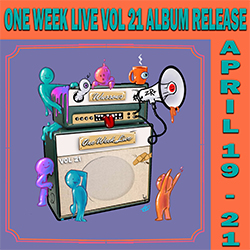Cats and Dogs
 My old neighbor — we’ll call her Tonya — verbally abused her pets. It was like living next door to a David Lynch biopic of Joan Crawford.
My old neighbor — we’ll call her Tonya — verbally abused her pets. It was like living next door to a David Lynch biopic of Joan Crawford.
One summer, I was digging a fire pit in my back yard. It was the middle of a nice, warm day, probably in June. Suddenly, over the fence that encloses my back yard, I heard a woman’s voice talking reasonably to what sounded, inferring from what she was saying, like a small child: “Autumn, remember what we talked about? You promised to play on this side of the yard, away from Callie’s sandbox. If you don’t do what you promised, we’ll have to go inside.” Huh. I must have neighbor kids. Cool. I kept digging my fire pit. Three feet in diameter? Four? I tabulated the number of edging stones I would need. The voice from over the fence started up again. “Autumn! You stay away from Callie’s sandbox, like we talked about!” I had hardly dumped my shovelful of dirt before she started up again, this time plaintively, “Autumn! You are ruining this for both of us! I said NO!” And not even five seconds later, crazy time. Full scream. “AUTUMN! Come back here right now! I told you to stay away from that fence! I TOLD YOU TO STAY!! AWAY!! FROM!!! THE!!! F#*KING!!! FENCE!!!” She was almost roaring now, she was screaming so hard.
“AUTUMN! YOU NEVER LET ME DO ANYTHING! YOU RUIN EVERYTHING! WE CAN’T EVEN BE OUT IN THE G%$DAMMED YARD FOR FIVE G%$DAMMED MINUTES BEFORE YOU F#*K IT ALL UP! WE’RE GOING INSIDE! INSIDE AUTUMN! ARE YOU HAPPY NOW? ARE YOU? ARE YOU HAPPY NOW???!!!???”
I called 911. The dispatcher asked for my address and said, “ohhhhhh. That’s Tonya. Those aren’t kids. She’s got some kind of pets over there. We see a lot of her.” I was relieved. Although I don’t think it’s right to derogate your animals, I was hopeful they understood more about their owner’s relative emotional state than, well, English.
I should cop to something right away: I am not a huge animal person. I don’t understand them. I think they are interesting and other, which is nice, but not critical to my experience as me on the planet. I’m happy to see them but not anxious to. That said, if you leave an animal in my care, I will eventually come to love the creature. But I will never spontaneously take pictures of it, or celebrate its birthday. I’m sorry about this, but it’s the truth about me.
I inherited a cat (who my neighbor rescued but was too allergic to care for) about 15 years ago. We named her Bella. Bad things had happened to her — she had half as many teeth as she should have had, all broken in half on one side of her mouth. The vet thought it was an abuse injury, since a car couldn’t have done damage so precise, but a boot could’ve.
Perhaps because of that injury, Bella got what I affectionately referred to as “the tax return infection,” or “TRI,” every single year around tax time, forcing me to spend all that hard-earned money I had loaned to my government on boring things like life-saving feline antibiotics, for which she thanked me by removing most of the skin on my forearms when I administered them. (I went through one pair of oven mitts a year, for exactly that reason.) Every year I owned her, the vet said, “I don’t know if she’s going to make it,” when she’d get the TRI. She’d stop eating, lose so much weight that we called her the Karen Carpenter kitty, and lay around, looking like the kitty embodiment of Morrisey lyrics. And every year she’d rally, responding to the antibiotics as though they were dehydrated capsules from the river of life, flipping the Grim Reaper the bird while sock-hunting and packing on the old lb’s, until she blew past Karen Carpenter and most resembled Marlon Brando. She would get so fat she would lean back on the couch and, with her little stick arms out to either side, lick her upper belly area. She got so fat she bounced off the radiator, trying to leap up and enjoy the afternoon sun.
But one year, she didn’t respond to the antibiotics. She got thinner and slower, and finally just lay in the corner, crooning and mewing. We did everything we could to save her — most of it crap our parents, friends, or other animal enthusiasts recommended. We gave her ice cream. We gave her lard. We gave her olive oil in a dropper, and in a last fit of desperation, we even put olive oil in her kitty butt. Finally, we realized our efforts were bordering on things they did at Guantanemo Bay. So we called and scheduled an appointment with the vet to end her life.
That turned out to be a really, really big deal. I had no idea.
When we got to the vet, we had a long conversation about what we would or wouldn’t be willing to do to save or extend her life. The conversation, while sympathetic and compassionate, was pretty brass tacks. Would we want to run $3,000 worth of biopsies and diagnostics, knowing there was a 50/50 chance she wouldn’t live through the tests? No? Would we want to do $500 worth of blood work, knowing the results would probably indicate the $3,000 worth of biopsies and tests were necessary? Before I had this cat, I scoffed at people discussing vast, expensive medical procedures they had done on their pets. Spleen transplants? Hip replacement? Really? If you had told me then that you were going to spend $3,000 trying to figure out what was wrong with your cat, I would have been replaying Jackie Kashian’s opinion of designer pets, “You know what you can get for three thousand dollars? Three thousand cats.” But now, standing in the vet’s office over Bella’s shivering body, I was mentally calculating how much space was on each of my credit cards.
I didn’t know I would feel like that. I didn’t know what I was supposed to do — what Bella would want me to do, if she was capable of “wanting” anything in the way I thought of it. What was the value of her pain? What did her life, her death mean to her? Was I taking something away from her by ending her life before she did? I needed to know these things to make the right decision, and there was no one to ask but Bella. And she couldn’t tell me. It was kind of like every other critical decision I’ve ever made in my life — decisions in which no matter what I choose I’ll always wonder, always revisit the whole situation and make the decision over and over again, because it never feels right, never settles itself. And, in those situations, every phone call I make to get advice, counsel, or reassurance just rings and rings. Nobody ever picks up. I kept looking into Bella’s eyes, and the phone just kept ringing.
We went ’round and ’round with the vet, asking a hundred different versions of, “will that save her?” and getting a hundred different versions of “probably not for long” until we all kind of arrived at the answer we knew in the first place. We knew she was going to die — now, or very soon.
And in the absence of any new information, we would do what we could to make that suck as little as possible. “We have to let her go.” My sister said.
She was so skinny by then that her body felt like one of those rabbit’s foot keychains, all whispery-furred and hollow. We held her paws, touched her face as the medicine began to work. Her body relaxed, her chest stopped rising and she was gone. It was almost immediate.
All those things — her love of my socks, her wild-eyed destruction of our couch, her fat belly rebounding off the radiator like a bad layup, the years of purring and warm fur against my feet — gone. That’s what we get to know about death — that it removes all of those connections, all of those threads tying that being to the world, and pulls them through the eye of a needle, the other side of which is beyond our vision. It seems impossible for so many threads to just vanish, but they do.
We stood there with her body, crying and petting her, and then her body became her “body” — not her at all. It wasn’t hard to leave her there, because she was already gone.
So, I loved that cat.
I told you this story, because I don’t want you to think I’m a monster when I tell you the rest of the story. Or at least, I don’t want you to think I’m that kind of monster.
The vet called me two weeks later to come pick up her boxed ashes, assumedly to bury them in some shady corner of my yard, with pomp, circumstance, an acoustic version of “In My Life” by the Beatles, and somber prayers to Rascal, the kitty version of Jesus. (Duh, God would send his only cat to die in place of billions of cats so they could live forever.)
But, I didn’t do any of that stuff.
Instead, I put the box in my trunk. It made the most sense. The box was clearly marked, “BELLA O. REMAINS.” What was I supposed to do, buckle it into the front seat? I just kept having visions of getting into an accident on the way home and the box exploding all over the inside of my car, like Mt. St. Helens. There I’d be, with ash outlines of my sunglasses, coughing and sneezing Bella dust while I exchanged insurance information. (“No, my car’s not on fire. These are just my cat’s ashes. No! She was already dead.) The trunk was a better idea. It was February at the time, and the ground was frozen solid. So, when I got home, I left it in the car. Not her, the box of ashes. And then I forgot all about them.
I will be the first person to admit that this is horrible.
I didn’t mean to do it, but I just kept forgetting they were in there until I needed to put something in the trunk. Which was usually groceries. I would open the trunk, see the telltale black box, and say, “Sh*t! Bella’s ashes! I have to remember to bring those inside!” And then I’d angle the Totino’s Party Pizzas between the box and the jumper cables. I’m not proud of myself. And anyway, it was winter and the ground was frozen, so I couldn’t bury her even if I did remember the box, although I didn’t, so it doesn’t really matter. And then we cleaned out our basement, and I began driving around with every soccer item my son had used from 1998 to today in my trunk, piled on top of the box. So, I put my groceries in the back seat of my car, and Bella’s ashes became a distant memory.
As a result, I drove that cat’s ashes around for three years.
One day, my son and I dropped the trunk stuff off at Goodwill, and he spotted the box. “What is this, mom? Does it go in the bin?” I want to point out at this point in the story that I could have said, “yep,” and been done with it, no shame, no ‘splaining, but I am better than that. Not bury-my-beloved-cat-in-a-timely-fashion better than that, but don’t-donate-my-beloved-cat’s-ashes-to-Goodwill-to-avoid-telling-my-son-they’ve-remained-in-my-trunk-for-three-years better than that.
“Those are Bella’s ashes.” I said.
“MOM!!!!!” My son said, in a combination of horror and disgust. “Are you kidding?” I was not kidding.
“It was winter, and the ground was frozen!” I pleaded.
“For THREE years?” he asked, incredulously.
“For part of the three years …” I said, finally.
He held the box of ashes on his lap on the way home from Goodwill.
“Aren’t you worried if we crash, the box will explode all over you?” I asked.
“The ashes are in a plastic BAG, Mom!” he said.
“Really?” I asked
“YEAH,” he said.
“Ah. I see. We should bury them,” I said.
“You think?”
My son went out and buried her ashes in the corner of the vegetable garden, which I said nothing about (even though now I feel like the zucchini is going to taste like cat ashes or make us all get mad cat disease or something) because I had lost all ground to offer direction when I took the cat’s ashes on a three-year road trip. Sigh. In a way, Bella got the longest funeral procession of any cat, ever, including those Egyptian asshole cats, who were buried with live humans to protect them from evil and bring them whatever the Egyptian version of catnip and Meow Mix were.
I want you to know that I had and continue to have the very best intentions. And, although it may come as not inconsiderable reassurance and no surprise to you, no pets.
Recommended Links:
Leave a Comment
Only registered members can post a comment , Login / Register Here













No Comments